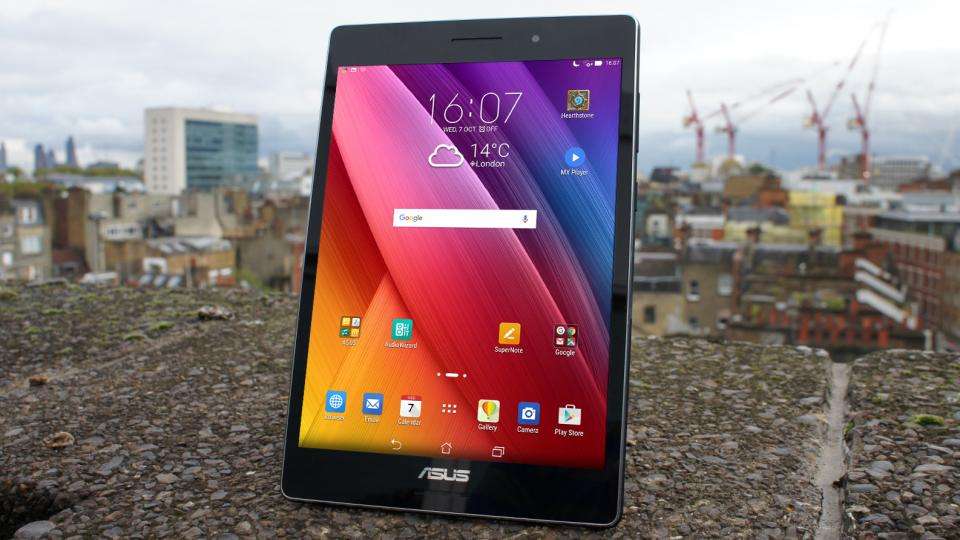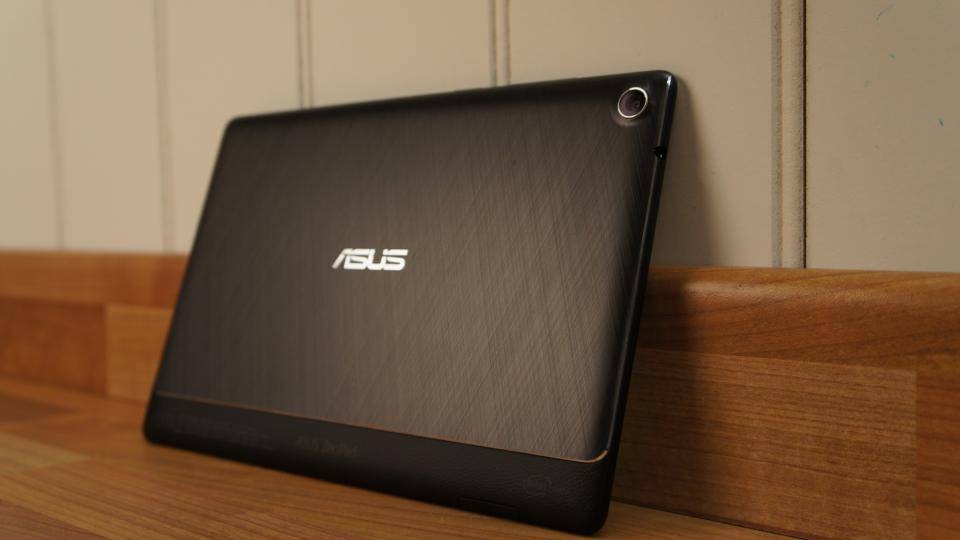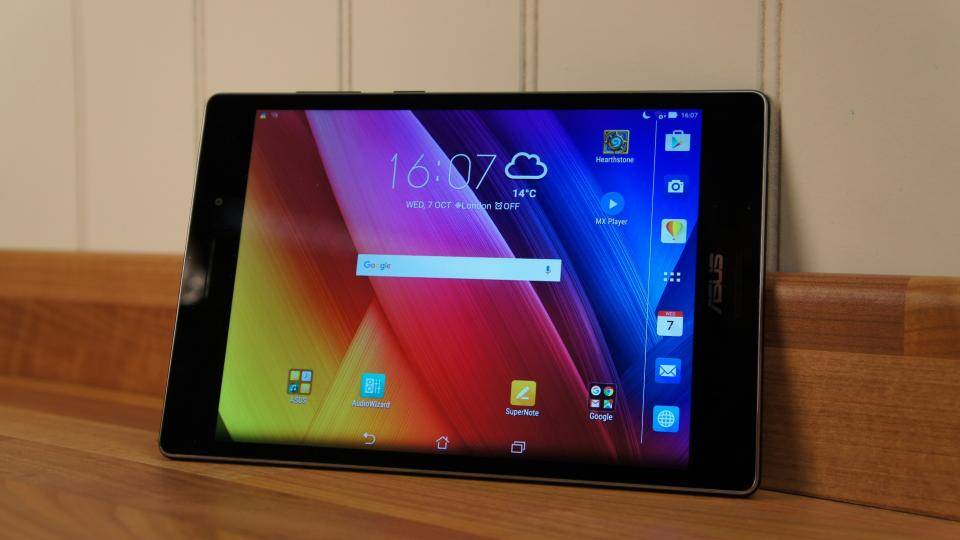Asus knows how to make a great tablet when sticking to a tight budget - just look at the two Nexus 7 s the company designed for Google. The ZenPad S 8.0 is another such example, only this time Asus has made its own decisions with regards to specification, design, and most importantly, price. On first impressions, it seems to have knocked it out of the park on all three counts; for £170, you get a high-resolution 8in tablet that looks gorgeous from almost any angle.

Design
There’s nothing else out there that can match the ZenPad S in terms of design or dimensions for the same money. At only 6.9mm thick and weighing just 317g, it’s a seriously compact tablet that’s only slightly thicker than the iPad Mini 4 , which currently costs £140 more.
Most tablets around this price range are made from plastic, but Asus has used a combination of metal and plastic for added style points. The crosshatched metal finish on the back helps avoid becoming a magnet for fingerprints, while the thin leather effect strip at the far edge creates plenty of grip for holding the tablet in one hand. It helps that it all looks rather stunning too.

As the tablet is so thin there’s not much room around the edges for ports. The ZenPad S has a 3.5mm audio jack at the top, power and volume buttons at the side which sit where your fingers naturally rest when gripping it one-handed, and a reversible USB type-C port on the bottom for charging.
The ZenPad S is available with 32GB of storage for around £200, but considering Asus has also managed to squeeze in a microSD slot, the basic 16GB model makes more sense; it costs £30 less and has enough capacity for most users out of the box, with the option to upgrade at a later date once you fill it with films, apps and music.
Performance
It’s a shame, then, that the ZenPad S is a little underwhelming for a mid-range tablet in terms of performance. With a 64-bit, quad-core Intel Atom Z3560 running at 1.33GHz, it only scored 938 in the Peacekeeper browser benchmark. Tesco’s £100 Hudl 2 scores 987, and while the Google Nexus 9 is on sale for £200 it remains the top of the mid-range pile – it more than doubled the ZenPad’s result with a score of 2020.
This was the case in Geekbench as well, with the ZenPad scoring 763 and 2,311 respectively in the single- and multi-core tests. The Nexus 9, meanwhile, managed 1,637 and 2,818 respectively. In practice, this means the Nexus feels slightly more responsive overall, with apps opening just that fraction faster, Android UI transitions happing just a little smoother. On the ZenPad, the multi-tasking Recents screen takes around half a second to open with only a few apps running, and media heavy websites occasionally stutter or re-draw when you scroll quickly through a page. These differences are only really noticeable when you have both tablets side-by-side, however, so for the most part the ZenPad is perfectly responsive.
It’s a similar story when it comes to graphics performance. The ZenPad S scored 616 in the GFXBench Manhattan onscreen test and 562 frames in the off-screen test, which is middle of the road at best. The Nexus 9, meanwhile, managed 1,385 and 1,942 frames respectively, indicating far superior performance. The chipset Asus has used is typically paired with lower resolution screens, and in the ZenPad S it seems to struggle to maintain frame rates at the native 2,048x1,536. It was also frustrating that it refused to play Hearthstone, our go-to test of gaming performance; the tablet simply couldn’t get past the initial loading screen.
Display
The processor might not be lightning fast, then, but the ZenPad S makes up for it in other areas – most notably the screen. Asus has done a terrific job squeezing such a high resolution panel into an affordable tablet; most competing models have Full HD screens or lower, but the ZenPad S matches the iPad Mini and Samsung's Galaxy Tab S2 at 2,048x1,536.
Of course, resolution isn't everything, and while 76% sRGB colour gamut coverage isn’t a particularly amazing result, colours certainly look vibrant. An excellent 1,549:1 contrast ratio and high 381.7cd/m2 maximum brightness help give images plenty of punch, and even make it possible to use the tablet outdoors without straining your eyes. Viewing angles are great too, with only a small amount of colour shift at more oblique angles. Black levels were also surprisingly low for an LCD display at 0.25cd.m2, which means dark images have real depth and definition.

It’s the Splendid screen calibration app that sets the ZenPad S apart, however. Whereas on other tablets you’re stuck with the colour temperature and saturation the manufacturer settles on, the ZenPad S lets you customize both to get the picture that you think looks best. The differences aren’t dramatic unless you push the sliders to their maximum settings, admittedly, but it’s just handy to have the option. There’s also a blue light filter option, that makes using the tablet at night more comfortable on the eyes.
The screen does take its toll on battery life, unfortunately. With brightness set to 170cd/m2, the ZenPad could only last for a disappointing six hours 39 minutes of video playback. This means you’ll either need to reduce the brightness further or keep the charging cable with you when leaving the house, if you want to get through an entire day and still have juice left.
